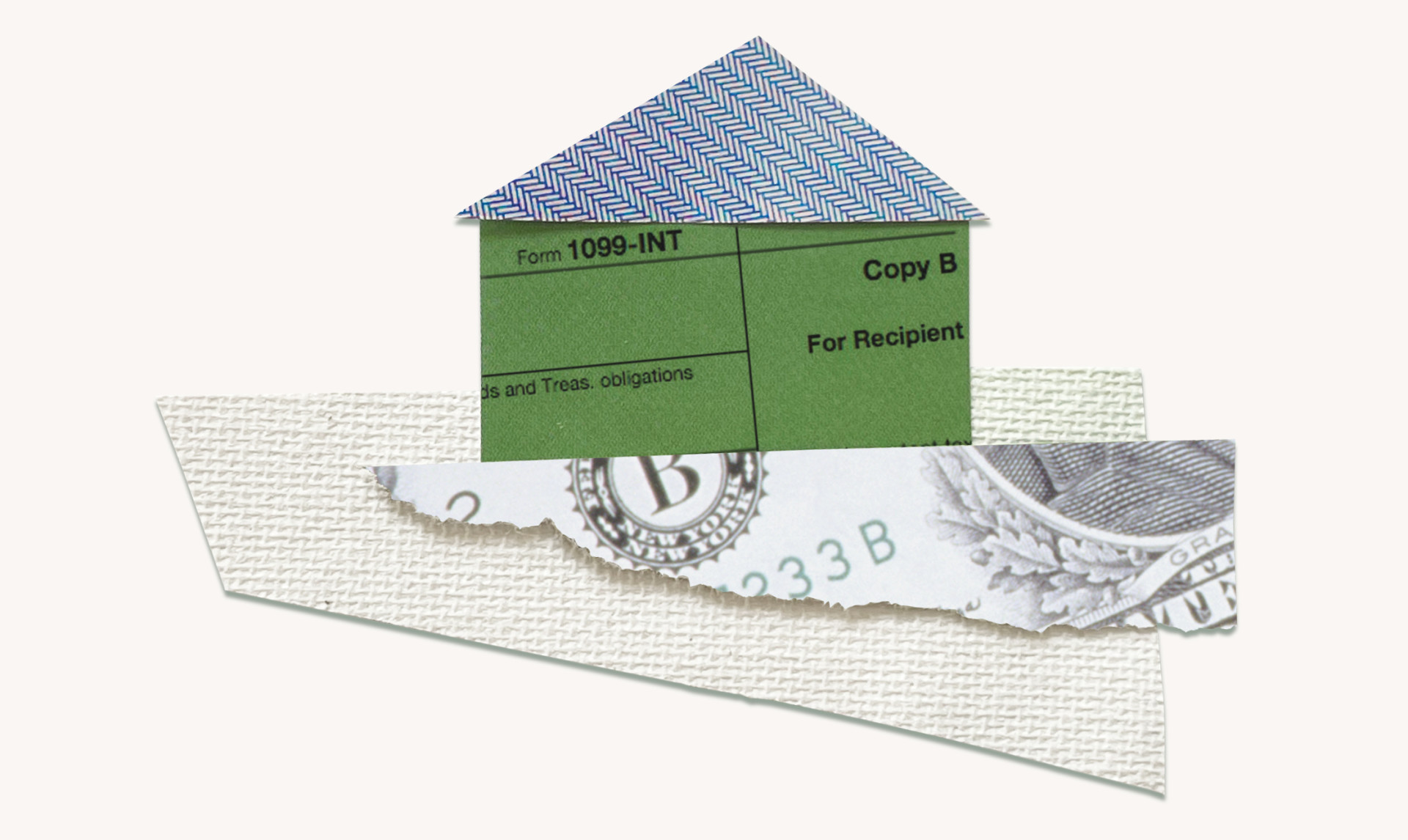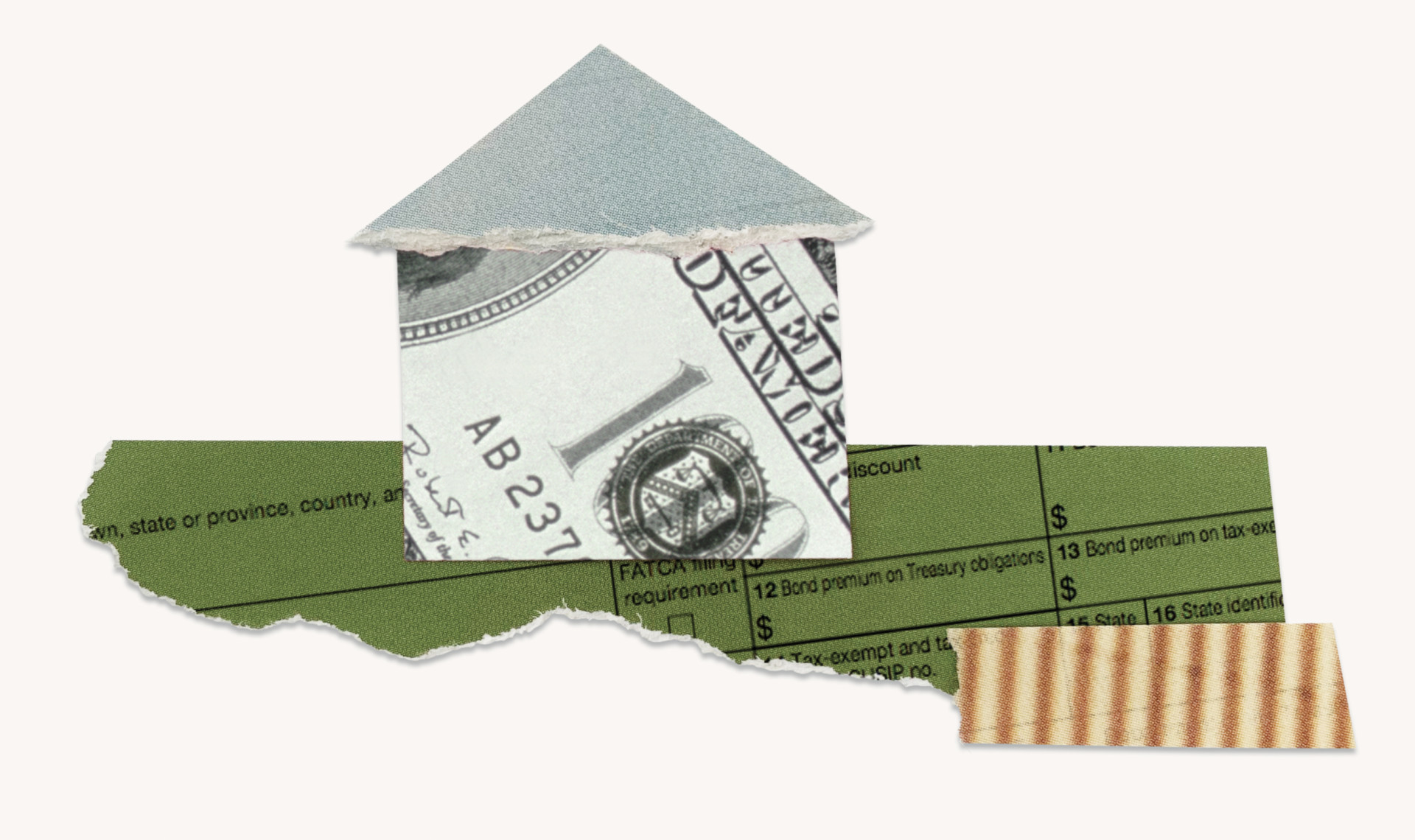Investing in single family residential real estate offers multiple ways to increase wealth, from cash flow from rental income, to appreciation from an increase in a home’s value, to leveraging borrowed money to boost returns, to building a portfolio of properties to act as a hedge against inflation.
Saving on taxes is a bonus as well.
A savvy investor can use a number of different strategies to ease their tax burden. Some sections of the tax code are geared toward encouraging improvements and will reward a property investor who makes improvements.
Some of these strategies are outlined below, and because of the complex nature of the tax code, investors are encouraged to consult with a tax professional or other adviser to make sure they follow the law correctly.
31 tax deductions real estate investors need to know
Most property owners are aware that they can write off costs like mortgage interest, insurance, and ordinary maintenance and repairs. But there are many other tax deductions related to managing and improving a rental property that owners can take advantage of.
Mynd has compiled a list of 31 tax deductions that are sometimes overlooked by property owners. Here are 10 to be aware of:
1. Business startup costs
Those who are just starting their rental property business might be able to deduct a portion of their startup costs, such as:
- Accounting fees
- The study of potential markets
- Training for new employees and salaries
- Office equipment and furniture
2. Costs incurred while looking for new property
The costs of hotel, airfare, rental car, meals, and other travel expenses incurred while looking for a new rental property are tax-deductible if they are ordinary and necessary.
To qualify, at least half of the time spent away on travel must be spent on doing business, and the primary reason for travel must be business. This means investors can get a tax break for a long weekend in Florida as long as they spend the majority of time engaging in business-related activities.
3. Ordinary and necessary advertising expenses
Property owners can write off any costs incurred while advertising their business and/or a rental unit. Typical expenses include classified ads, signs, and postage for mailers. The cost of building a new website is deductible as well.
4. Internet and cell phone plans
Property owners who use their internet and cell phone for business purposes can deduct the percentage they spend on their business. It may be challenging to separate personal and business usage, but the key is to be reasonable and consistent and keep records.
5. Suspended passive losses
Real estate professionals can write off rental loss and business losses against any income they earn. That includes income lost to unpaid rent. Until 2025, there's a cap of $250,000 if they are single and $500,000 if they are married filing jointly. That cap goes away after 2025.
Rental property losses that aren’t deducted right away are called suspended passive losses. These losses are carried forward indefinitely until one of two things happens:
- The owner has passive income (from a rental home or otherwise) to deduct again
- The owner sells or transfers the property
6. Utilities paid by the owner
Property owners often pay for common area lighting and security systems. But they can also write off expenses like heating, water, sewer, gas, trash collection, cable, and internet.
The costs of utilities used by tenants are fully deductible, even if the renter reimburses the owner later, though those reimbursements must be claimed as income.
7. HOA dues
Investors who belong to a Homeowners Association have to pay dues. Since they’re a necessary expense, that makes them deductible against rental income.
8. Legal fees for an eviction
Legal fees are usually incurred as part of the costs of an eviction. Court fees and legal fees are deductible.
9. Expenses paid by tenant
Any fee that a property owner would pay if he lived in the property that is covered by a tenant's rent payment is known as an expense paid by tenant. Investors can easily stipulate which fees they may be by using a free rental agreement template.
For example, a tenant might cover their own HOA dues, which would be deducted from their monthly rent. It’s key to remember that:
- Expenses paid by the tenant count as rental income since the owner would be making those payments otherwise, and
- The expenses have to be themselves deductible, like water or sewage
10. Energy efficiency
Real estate investors who upgrade their property to be more energy-efficient might qualify for a partial deduction. For example, replacing a 10-year-old HVAC or a 15-year-old water heater may qualify.
Brian Boucher
How to take depreciation and save on taxes
Depreciation allows property owners to recover some costs of an income-producing property, which the IRS estimates has an average lifespan of 27.5 years. Once a property is put into use, owners are permitted an annual deduction of 3.636 percent of the total cost of the property.
To qualify for depreciation, a property must meet all the following requirements, according to the IRS:
- The individual filing taxes must personally own the investment property.
- The individual filing taxes must use the residential property in their business or income-producing activity (such as collecting rent).
- The property has a determinable useful life.
- The property is expected to last more than 1 year.
Depreciation is also relevant to a residential property’s general maintenance and improvements. While maintenance and improvements are similar, they have different definitions regarding the tax allowance for rental property owners.
Maintenance is a repair, meaning it returns the property to its original condition. For example, patching up a hole in a roof would be maintenance while replacing the roof would be considered an improvement. In general, improvements add to the overall property value.
Rental home owners can write off many expenses in addition to factoring depreciation into their taxes. Aside from annual depreciation, there are some tax deductions that are available to rental property owners.
Rachel Benaim-Abudarham
Bonus depreciation vs. section 179 write offs
Bonus depreciation and Section 179 are two tools real estate investors can use to immediately deduct expenses that normally would have to be spread over a number of years.
Using bonus depreciation, a business takes the writeoff for the cost of an asset immediately. It applies only to improvements that have a “useful life” of 20 years or less (useful life being the amount of time the IRS has determined an item can be used as part of a business’s operation).
For real estate investors, this applies to capital improvements to a property.
Bonus depreciation is being phased out
The Tax Cuts and Jobs Act (2017) made significant changes to the rules on this deduction. It doubled the bonus depreciation deduction for qualified property from 50 to 100 percent. It also allowed used property to qualify for the first time.
Bonus depreciation will decrease by 20 percent per year beginning in 2023, so the 2022 tax year is the last one with 100 percent depreciation, and the benefit phases out at the end of 2026.
Bonus depreciation is calculated by multiplying the bonus depreciation rate (currently 100 percent) by the cost of the asset. For example, assuming a 21 percent tax rate, a business claiming bonus depreciation on an asset that cost $100,000 would deduct $21,000.
This strategy can be used to create a net loss.
How does Section 179 work?
Section 179 also permits speedier deductions than standard depreciation, but it allows greater flexibility. Investors who use it can deduct an amount of their choosing, and they can allocate the deduction among assets as they choose. This way, they can save some depreciation for future years.
Section 179 is especially beneficial for small companies, like retail real estate investors.
The deduction applies to assets like cars, office equipment, business machinery, and computers. As of 2022, the deduction is capped at $1,080,000, and the spending cap is $2,700,000.
To qualify, the purchased items must be in use for business purposes more than 50 percent of the time.
Businesses may be able to avail themselves of both bonus depreciation and Section 179 deductions. If investors do use both, the IRS requires them to use Section 179 before bonus depreciation.
Whereas bonus depreciation can be used even if a business isn’t profitable, a Section 179 deduction requires profitability. A business cannot take a deduction greater than its own profits. So, if a business makes $20,000 and the improvement costs $30,000, the owner can apply Section 179 to only $20,000.
Brian Boucher
What is the 20% Qualified Business income deduction?
A tax professional or an experienced property manager can help investors to avail themselves of the qualified business income deduction (QBI), which was introduced as part of the Tax Cuts and Jobs Act (TCJA) of 2017.
Also known as the Section 199A deduction or the 20 percent pass-through deduction, the QBI deduction lets owners of so-called pass-through businesses deduct up to 20 percent of the income from a qualified trade or business if the owners meet certain thresholds.
Figuring out if an investor qualifies for the QBI deduction is no simple matter, because the proposed regulations rest on a tax law question that doesn’t have a definitive answer: Is owning rent-generating property a business or an investment? Rather than directly answering this question, the IRS provides a set of criteria to qualify for the deduction.
What are the requirements to qualify for QBI?
There are four main requirements to qualify for the QBI deduction.
Investors must make sure to have separate records for their investment properties.
If they have owned the home for less than 4 years, they must document that they have spent 250 hours on rental services, which can include, for example, speaking to tenants, doing maintenance, or screening renters. If they have owned the home for more than 4 years, they must show that they have spent 250 hours on rental services in 3 of the 5 consecutive years.
They must maintain time logs to show how those 250 hours were spent.
All documents demonstrating the above must be attached to each tax return.
Not all income qualifies. QBI excludes:
- Dividends
- Interest income
- Capital gains/losses
- Income earned outside the U.S.
- Certain wage and guaranteed payments made to partners and shareholders.
How to meet the QBI criteria
Meeting these criteria means that the individual(s) or entity puts in enough of a particular type of work to qualify for the QBI deduction.
“It’s tricky,” says Thomas Stepp, Mynd’s head of investor offerings, “and that’s coming from someone who’s been in this space for a long time. I don’t think the QBI is clear to anyone but an accountant, and if you asked three different accountants about the same scenario, you would probably get three different answers.”
The law also requires those who want to take this deduction to spend a good amount of time running their business, so it may be most applicable for investors with a large portfolio that they self-manage.
“You can definitely qualify, but they make it like dragging yourself across glass to get it,” says Stepp, “so the time invested may outweigh the savings returned.”
Given how complicated the QBI deduction is, it is prudent to consult with a real estate tax professional. Mynd’s property management services can be helpful because of how accurately they can document the work it takes to maintain rental properties.
Brian Boucher
What investors need to know about 1031 exchanges
A byzantine world of tax rules awaits investors when it comes to selling properties. But sticking to the basics of one popular tool to maximize profits and avoid capital gains taxes has proved to be one of the best bets for building foundational real estate wealth.
It’s called a 1031 exchange. And it’s a tax-deferring transaction that can be used in just about any property portfolio.
What is a 1031 exchange?
A 1031 exchange gets its name from Section 1031 of the U.S. Internal Revenue Code, which allows an investor to avoid paying capital gains taxes on the sale of an investment property, as long the proceeds are reinvested within certain time limits.
1031 exchange rules and regulations
A 1031 exchange works as a tax-saving mechanism in a variety of ways:
- It is a swap of properties that are held for business or investment purposes. (Houses that are flipped do not qualify.)
- If used correctly, there is no limit on how many times or how frequently an investor can execute a 1031 exchange.
- The rules can apply to a former primary residence under very specific conditions.
Requirements to qualify for the tax break
It's necessary to exchange one rental for another rental. An investor cannot use the 1031 exchange to sell a rental home and then buy a piece of land that isn't attached to income. And after the sale of a rental property, a 1031 exchange cannot be executed to purchase a vacation home.
The qualified intermediary, who holds the escrow exchange fund, plays an important role in this process. If an investor touches any of the money made when a property is sold, the transaction is immediately subject to taxes. Spending the money or moving it into an investor’s account would incur penalties; such actions void the 1031 exchange.
A section 121 exclusion can save even more
Thanks to Section 121 of the Internal Revenue Code, the taxpayer is entitled to a $250,000 (if single) or $500,000 (if married filing jointly) exclusion on the sale of any property they own and have used as a primary residence (also known as a “principal residence”) for 24 out of the last 60 months.
With an exclusion, it isn't necessary to pay taxes or reinvest. These 24 months also don't have to be spent consecutively.
Like a 1031 exchange, it's prudent to consult with a real estate professional before performing a Section 121 exclusion to make sure it is done correctly.
There are several ways in which the 1031 exchange and a Section 121 exclusion can complement one another. Here’s an example.
- An investor buys a property and lives in it for two years. Then she moves out and
- The property is kept as an investment for 18 months.
- When the rental property is sold, an investor can use the Section 121 exclusion and the tax deferrals from the 1031 exchange.



